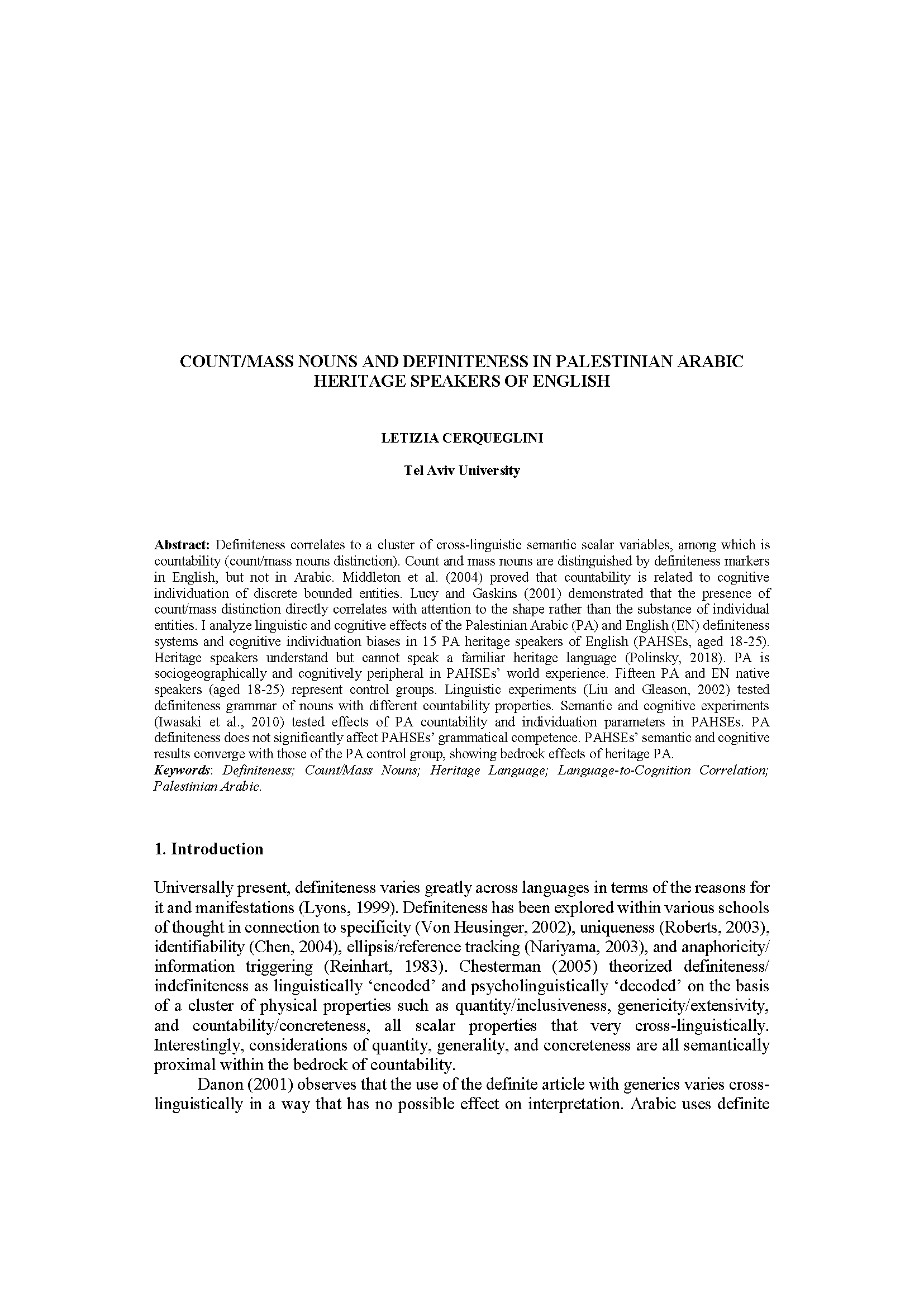COUNT/MASS NOUNS AND DEFINITENESS IN PALESTINIAN ARABIC HERITAGE SPEAKERS OF ENGLISH
DOI:
https://doi.org/10.62229/roar_xxii/8Cuvinte cheie:
Definiteness, Count/Mass Nouns, Heritage Language, Language-to-Cognition Correlation, Palestinian ArabicRezumat
Definiteness correlates to a cluster of cross-linguistic semantic scalar variables, among which is countability (count/mass nouns distinction). Count and mass nouns are distinguished by definiteness markers in English, but not in Arabic. Middleton et al. (2004) proved that countability is related to cognitive individuation of discrete bounded entities. Lucy and Gaskins (2001) demonstrated that the presence of count/mass distinction directly correlates with attention to the shape rather than the substance of individual entities. I analyze linguistic and cognitive effects of the Palestinian Arabic (PA) and English (EN) definiteness systems and cognitive individuation biases in 15 PA heritage speakers of English (PAHSEs, aged 18-25).
Heritage speakers understand but cannot speak a familiar heritage language (Polinsky, 2018). PA is sociogeographically and cognitively peripheral in PAHSEs’ world experience. Fifteen PA and EN native speakers (aged 18-25) represent control groups. Linguistic experiments (Liu and Gleason, 2002) tested definiteness grammar of nouns with different countability properties. Semantic and cognitive experiments (Iwasaki et al., 2010) tested effects of PA countability and individuation parameters in PAHSEs. PA
definiteness does not significantly affect PAHSEs’ grammatical competence. PAHSEs’ semantic and cognitive results converge with those of the PA control group, showing bedrock effects of heritage PA.




